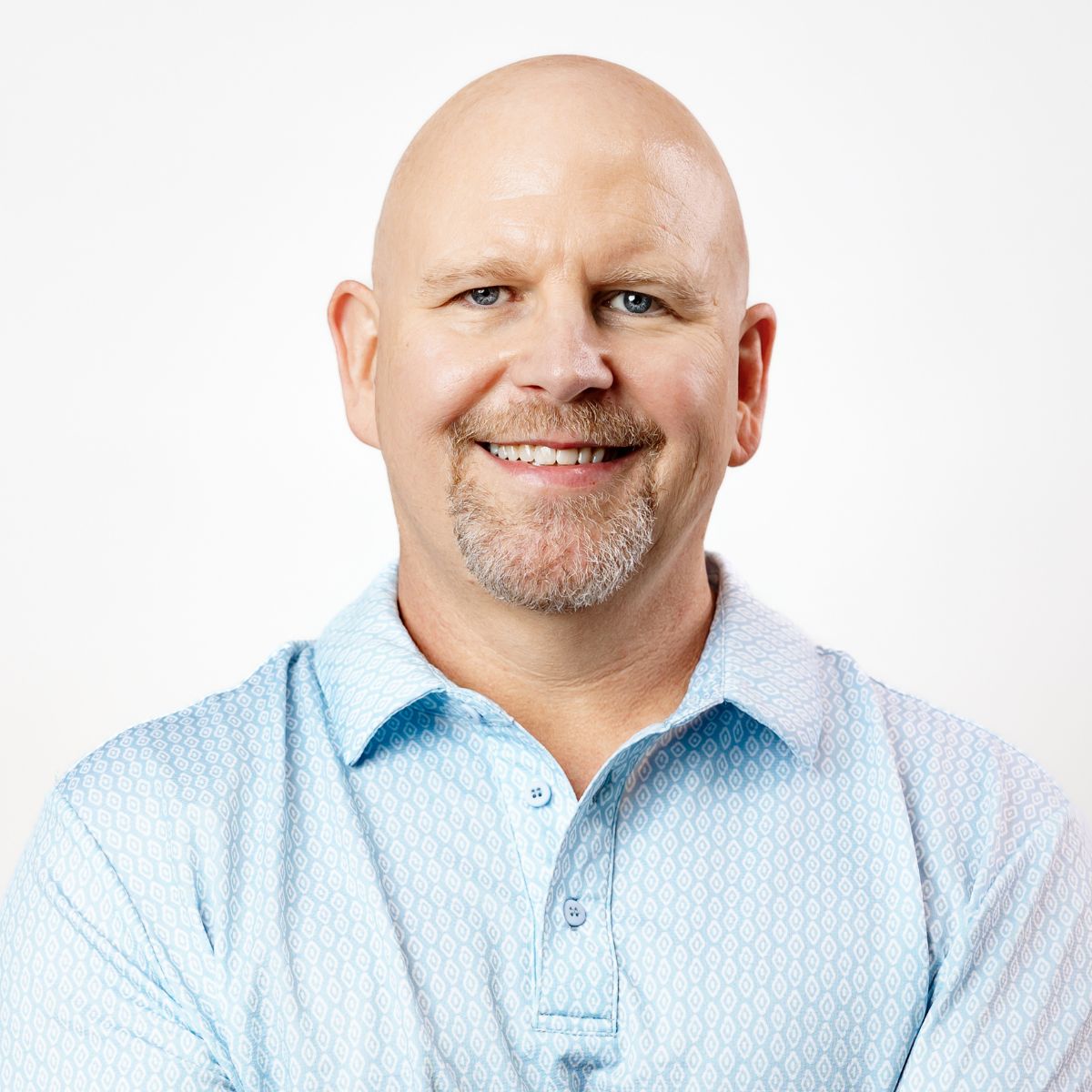Phil Villapiano on Football, John Madden, and the Evolution of the Game
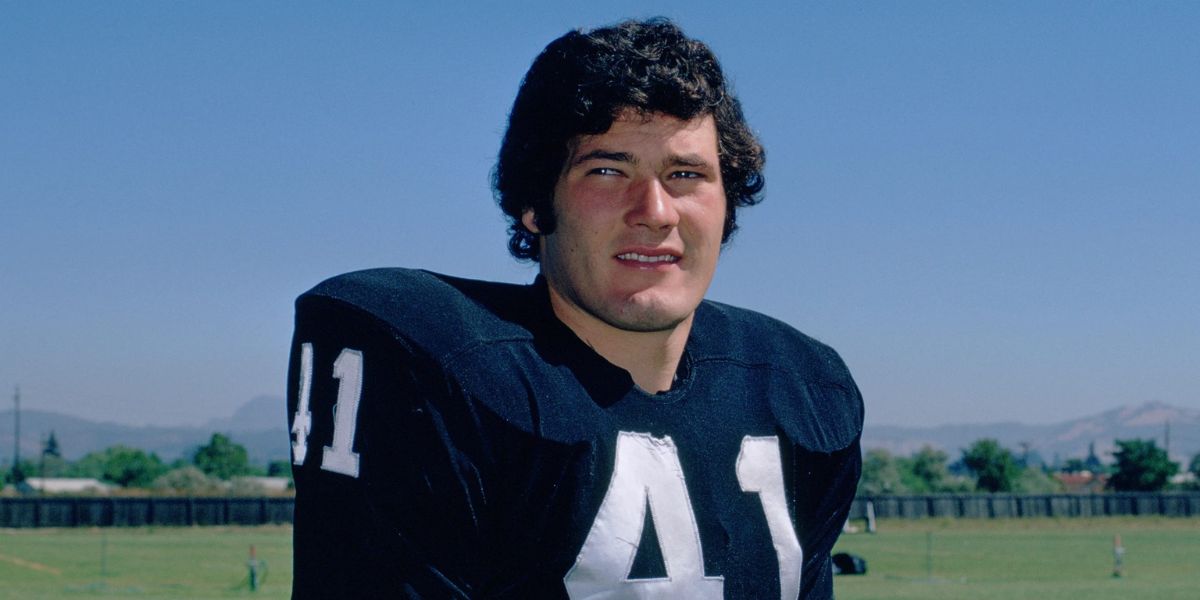
It’s not every day that I get the chance to talk one-on-one with an NFL legend, but this week I had the privilege of doing just that. Phil Villapiano, a name that Raiders fans and football historians alike know well, joined me for an in-depth conversation about the game he loves. Phil spent 13 seasons in the NFL as a hard-hitting linebacker, won Super Bowl XI with the Oakland Raiders in 1977, and forever etched his name in football lore with his role in the iconic Immaculate Reception. Beyond his on-field legacy, Phil has remained a beloved figure in the football community—respected not only for the way he played the game, but also for his generosity, humor, and passion for life.
I’ve been fortunate to know Phil for a little over a year now, and during that time I’ve even had the pleasure of virtually meeting both of his sons. He’s the kind of guy who makes you feel like you’re part of his family. Like talking to an old friend, we spent more than two hours on the phone together, swapping stories and digging into everything from the evolution of NFL rules to John Madden’s lasting impact on the game. Phil also shared some exciting news about his small role in the upcoming John Madden biopic starring Nicolas Cage, and he gave me a sneak peek at his forthcoming book, Just Tackle Baby, which is sure to be packed with incredible stories from his playing days.
I want to thank Phil for his time, his candor, and his friendship. What follows is the full text of our conversation, condensed for readability, but true to the heart of his words. I hope you enjoy it as much as I did.
NFL Rules: Then vs. Now
Steve Pugh:
Phil, you played in a very different era of football, when defenses had a lot more freedom in how physical they could be. What are some of the things you were allowed to do back then that players today would get flagged for, and how do you think those rule changes have affected the way the game is played?
Phil Villapiano:
Well, I think the rule changes have taken a lot of the brutality out of football. And that’s not necessarily a bad thing.
When I came into the league, things like the head slap were legal. Defensive ends would literally slap offensive linemen right in the ear hole with those big hands. You could break an eardrum, and that was happening play after play. Those guys were getting concussed all the time.
I had my own techniques too. Early on I got a bad stinger in Atlanta, so I started relying more on my arms than my neck. I bulked up and developed what I called the rake and the can opener. I’d hit guys high with my arm, and with the cast under my pads it was basically like hitting them with a club. If I caught a guy in the throat, I could snap my elbow up and take his helmet off. Totally illegal today. But back then it was part of the game.
Defensive backs could also run right through receivers with their heads. Most of the time the guy catching the ball was looking the other way, so the collisions were massive. Quarterbacks could basically lead their receivers into getting killed. That doesn’t happen anymore.
And then there were the crackback blocks on linebackers. I almost had my career ended a few times with guys coming at my knees. I hated that. My personal rule was: if you went for my knees, you were getting strangled. That’s how brutal it was.
Even on the line, my initial move was basically firing my hands straight into the guy’s face across from me. Now that’s an automatic flag. Back then, it was just football.
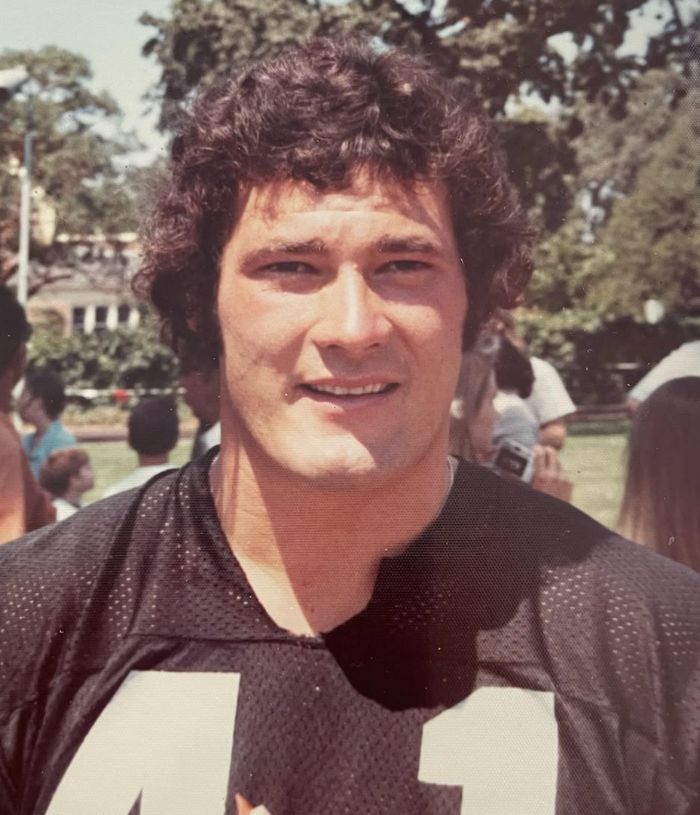
I remember talking with John Madden once about the new safety rules. He said, ‘Phil, what do you think?’ I told him I thought they were great. He was surprised, because of how I played back in the day, but we played that way because that’s what you did at the time. I honestly think the league is safer and in a better place now. It’s still the nastiest game ever created, but you don’t need all that extra brutality to make it great.
The Future of Player Safety
Steve Pugh:
Looking ahead, the NFL has put a big emphasis on player safety and concussion protocols. Do you think the league is headed in the right direction, and what else do you believe needs to be done to protect players without losing the physical nature of football?
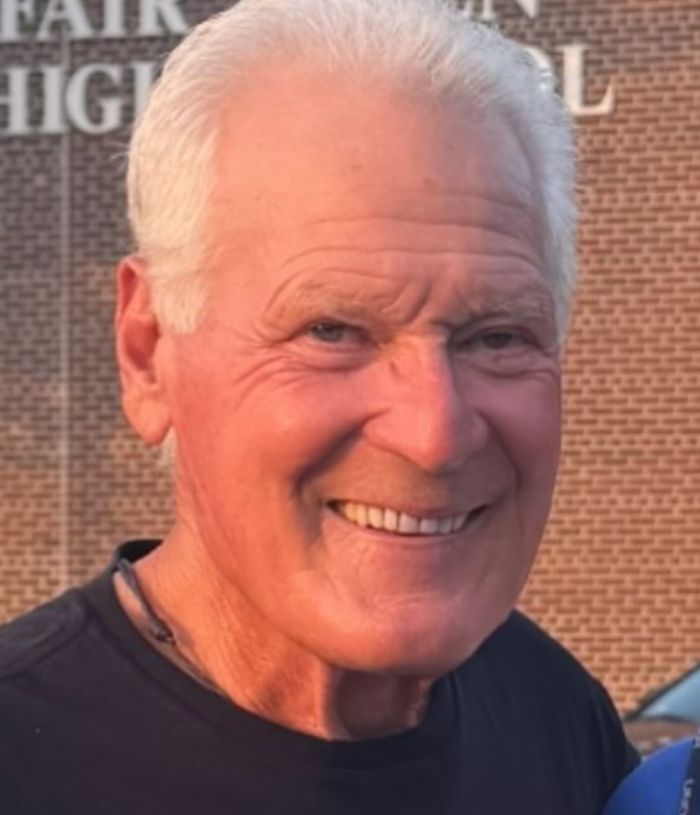
Phil Villapiano:
You know, the kickoff was always one of the nastiest plays in football. And it actually ended my career when a guy went right through my knee. Kickoff coverage and returns were nasty. The league has been working on that, and with the new rules I think they’ve made it safer while still keeping it exciting. Now, if somebody breaks through, you might see a 100-yard return, which is great for the fans, but the collisions aren’t nearly as bad as they used to be.
As far as protecting players, I think the rules are pretty good right now. Where the league really needs to improve is with the referees. Too often they throw flags on defensive backs when it’s just two guys competing for the ball. That’s football! A couple years ago, a questionable call even cost a better team a trip to the Super Bowl. That’s not right.
So my biggest suggestion is: let’s get better referees. Train them more, school them better, and make sure they’re not throwing flags just because it ‘looks like’ something happened or because a coach is yelling for it. The rules themselves are fine, but the officiating needs to catch up.
Holdouts and Hold-ins
Steve Pugh:
Something we see a lot in today’s NFL is players holding out of training camp, or now even doing what they call a ‘hold-in,’ where they show up but don’t fully practice until their contract situation is settled. How do you think something like that would have gone over in your era, and what do you make of how it’s handled today?
Phil Villapiano:
Well, it actually did happen a little bit in my era. Guys held out. But it wasn’t common because there was no free agency. The owners stuck together, so if you held out, you weren’t going anywhere, and all you were really doing was losing money. My philosophy was simple: you signed a contract, you honor it. If I signed a three-year deal, I was happy with it. You don’t rip it up after one good year and demand a new one. That’s unethical.
I remember Fred Biletnikoff ruined his relationship with Al Davis over that very thing. He’d sign a deal, have a great year, and then immediately want to renegotiate. Al finally had enough and told him to get lost, and Fred ended up in Canada. Marcus Allen went down a similar road. He won a Super Bowl early, wanted to redo his deal, and when it happened more than once, eventually he was shipped off to Kansas City.
On the other hand, Teddy Hendricks handled it differently. He left Baltimore, signed a big deal with Green Bay, but only played one year. Back then there was an “option year” where you had to come back at a 10% pay cut. Teddy said, “Forget it, I’m not doing that.” And somehow Al Davis worked out a deal to bring him to Oakland. That was Al — always finding a way.
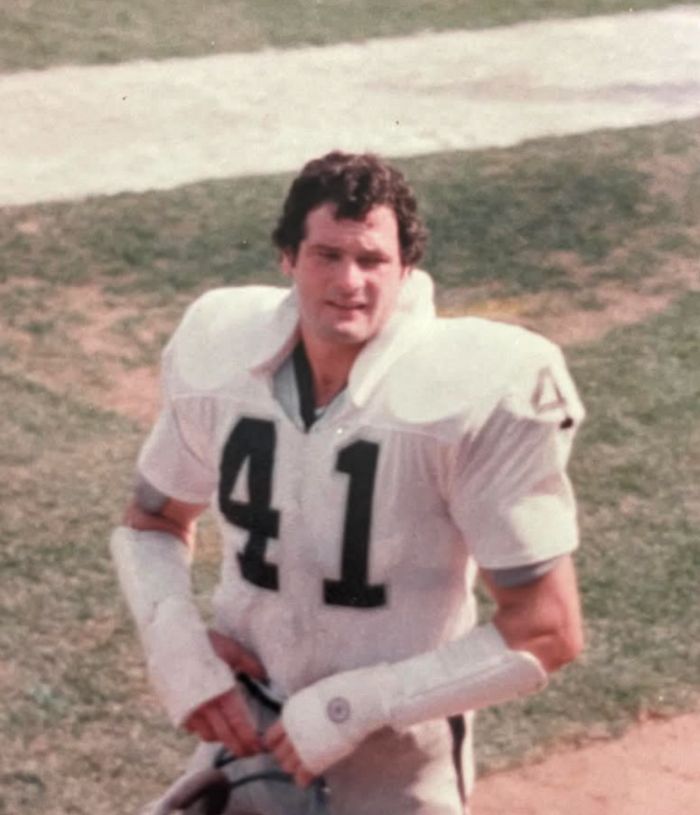
Today it’s totally different. Free agency changed everything. You play out your option, and you’re free to go. That linebacker [the Raiders] had, Robert Spillane, just left for New England because his old coordinator brought him over. He’ll make a ton of money, but it hurt the Raiders. That’s how it is now.
It’s definitely better for the players today than it was in my time, but it’s not better for building a team. In my first nine years, 85% of our defense was the same guys every season. That kind of continuity just doesn’t exist anymore. Now, players chase the big money, and the loyalty is gone.
Steve Pugh:
That’s so interesting, Phil. It actually reminds me of my years in the corporate world. A lot of times if someone performed really well relative to their peers and got rewarded for it with a nice bonus or promotion, the next year they’d come back expecting more of the same. And if they didn’t get it, they’d jump to another team. That self-centered mentality actually disrupted the team chemistry and had a negative impact on the company and the shareholders.
Phil Villapiano:
That’s absolutely correct. When you hired or promoted those people, you probably laid out a two- or three-year plan for them, right? They owe it to you to work those years. That’s how I saw it in football too. But people don’t think that way anymore, Steve. It’s messed up, but that’s the way it is.
And if you look beyond football, let me tell you, Wall Street makes the NFL look like kids. Guys jump firms constantly because the money’s better. My friends over there say the raises they get for jumping are huge, and there’s no option rule, no sense of loyalty like there was with NFL owners back in my day.
When I played, the owners protected their league. Al Davis was really the one who pushed free agency. He picked up Ted Hendricks when nobody else would. He did a lot of things differently. He moved the Raiders from Oakland to L.A. because the stadium in Oakland was garbage, and the city wouldn’t build him a new one. He was the first to make that kind of move, and then you saw Cleveland, Baltimore, Arizona all follow.
Nowadays, even though they’ve got Roger Goodell (who’s an incredible money maker) the owners don’t mess with each other too much. They’re all making too much money.
John Madden’s Legacy
Steve Pugh:
Phil, you had the chance to play for 9 seasons under John Madden when you were with the Raiders. And last year you shared with me quite a few amazing stories about him that most people wouldn’t know. Today, generations of fans know the Madden name through EA Sports’ Madden NFL video game franchise, but many of them may not fully know who John Madden really was. If you were explaining to those fans what made him so special — why his name still carries that kind of legacy — how would you describe him?
Phil Villapiano:
Well, Steve, when you talk about John Madden, you really have to think of him in phases. There was Coach Madden, there was Broadcaster Madden, and then there was the Madden that generations of kids came to know through the EA Sports video game. A lot of younger fans only know him from the game. My kids, Phillip and Andrea, grew up playing it, but they never saw him on the sidelines the way I did. For me, he was first and foremost my coach for nine years with the Raiders.
But even those who never played for him came to understand what made him special because of his broadcasting. The way he broke down a game, the way he taught football to people watching at home. That’s how he became ‘Mr. Football.’ He knew everything. And even if he didn’t, he said it in a way where you believed him anyway. He was larger than life, and he parlayed that into the video game, which cemented his legacy for generations.
And now, there’s even a movie coming out about him. They shot it in three parts: Madden as a coach, as a broadcaster, and as the face of EA Sports. I even got a little role in it as a kind of ‘Raider angel’ that only John can see and hear. It was surreal, but fitting, because John always had that presence. Like he was still guiding you even after you left the locker room.
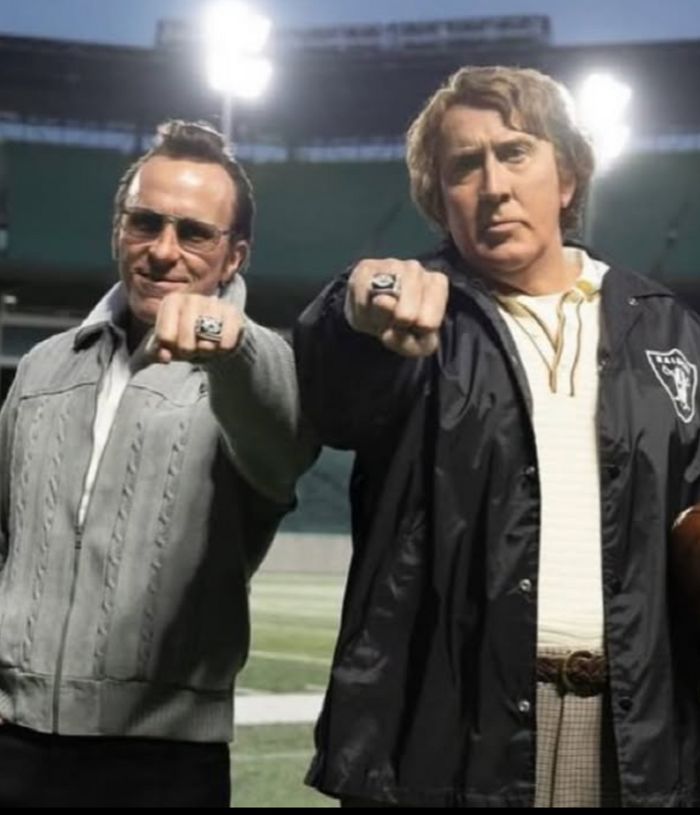
For me personally, John was a mentor. He always had advice, and he was always right. He told me more than once I should’ve gone into broadcasting, and if I’d listened, I probably would’ve been in the booth alongside him. But that was John. He saw things ahead of the rest of us. He was always thinking a few steps down the road, just like a great leader has to.
One of my favorite stories about him came during training camp. I had become the ‘commissioner’ of our air hockey and bowling tournaments, which were a big deal for team morale. But one preseason, we were like 0-3, and a reporter quoted me joking that I was more worried about the air hockey tournament than the games. Madden went ballistic, stormed into the breakfast hall, and threw me out of camp. I figured I was done. But a week later, he pulled me into his office, looked me in the eye, and said, ‘What kind of commissioner are you? We can’t win unless you get that tournament going.’ That was John — he understood the psychology of players better than anyone. He knew when to come down hard and when to use humor or tradition to bring a team together.
He never stopped coaching, even after he left the sidelines. I didn’t realize until after his passing just how many great coaches he mentored. Andy Reid, Steve Mariucci, and many others. He was constantly giving back to the game. That’s why his name still carries weight today.
I’ll tell you what, Steve, John Madden was more than a coach, a broadcaster, or a video game. He was a visionary. John had that gift in football. And that’s why his legacy isn’t just a name on a video game box. It’s the way he shaped the sport, mentored people, and brought football into every home in America. John was a cool guy and I loved him.
Rapid Fire Q&A with Phil Villapiano
1. Assuming Tom Brady is the GOAT, who’s the second greatest quarterback of all time?
Phil: Patrick Mahomes. I waited my whole life for a guy like that. Somebody that can do a little more than just drop back and throw. He’s got the most accurate arm in the world. He can make every throw from any arm angle, can run, finds the open man, and Andy Reid gives him the freedom to do it. I’ve got huge respect for the great pure passers: Len Dawson, John Hadl, John Brodie, Joe Namath, Sonny Jurgensen, George Blanda. I played against some of these guys. They were good! They could put the ball where only the receiver could catch it and I’d be exactly a half-step behind. And don’t forget John Elway! What a great player he was. But he didn’t have the trickery. If I had to choose, Mahomes is the one I’d put right next to Brady.
2. Who was the most skilled or elusive receiver you ever had to deal with on the field?
Phil: How about Billy “White Shoes” Johnson. Whew…that man could always get open. He wasn’t that big of a target, but he was just so fast. And a very nice guy. My teammate Cliff Branch was the fastest I ever saw, but White Shoes was the toughest to deal with.
3. Toughest running back to tackle in your career?
Phil: I put them in three different categories. The “too quick to catch” guy was Terry Metcalf. The midsize back who was the best I ever tackled was O.J. Simpson. And the big bruisers were Larry Csonka and John Riggins. These guys were 250 pounds and they could run. Csonka had a way of getting those knees right up in your face. He hurt you! Very few people know how hard it is to bring those guys down.
4. Favorite teammate you ever played with?
Phil: Bob Moore was my first close buddy. A tight end out of Stanford, our personalities just clicked. Otis Sistrunk was like a brother; we played side-by-side and did everything together. And John Matuszak. “Tooz” ended up right down the street from me; great player and a perfect fit next to me when he took care of himself. Honestly, with the Raiders everyone was your buddy. Once a Raider, always a Raider.
5. If you could play one more NFL season today, which team would you want to suit up for?
Phil: There’s no other team but the Raiders. I love the Raiders. You know, we got Pete Carroll there now and I got a feeling things are going to turn around. Pete Carroll is a player’s coach just like Andy Reid. I’d love to play on his team, come out there and make a million tackles, and help the Raiders come back to dominance in the league. Raiders forever.
6. In one word, what’s the biggest difference between the NFL of your era and the NFL today?
Phil: Money.
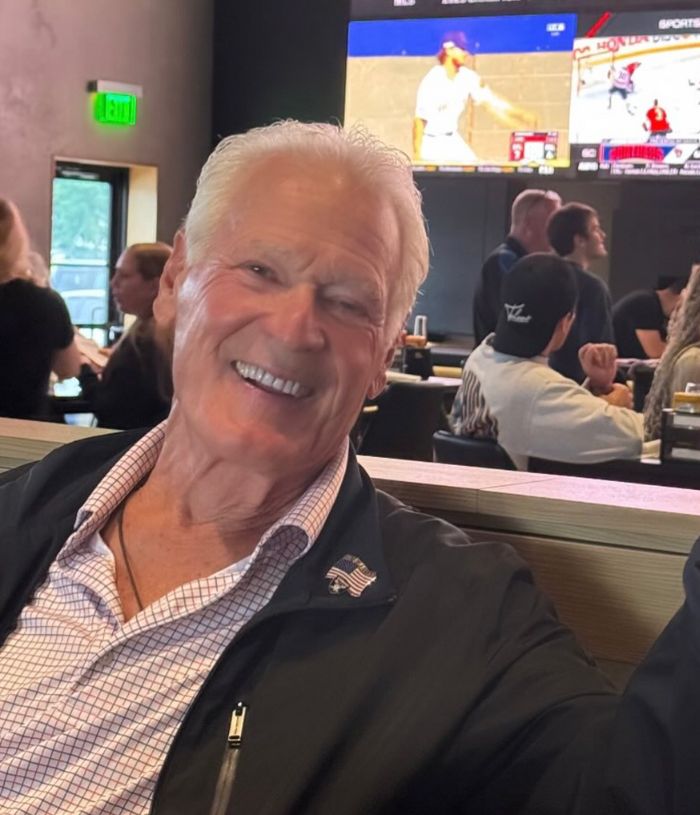
7. Favorite stadium to play in and why?
Phil: Denver. They had that heated “prescription” grass that stayed perfect, the fans were brutal and stayed right on top of you, and they ran that horse around the track after every score. It was my kind of environment. I always seemed to play well there, too. I think I made an interception every single time I played there. And playing in Kansas City and Pittsburgh was brutal but it was so fun, because everybody hated the Raiders in the ’70s, and that fired us up even more.
8. If you could recruit one current NFL player to your old Raiders team, who would it be?
Phil: Saquon Barkley. We never had that kind of truly great home-run back in our heyday. Clarence Davis was good, but I want a great one. I like our new kid from Boise State [Ashton Jeanty], too. They debuted him this past week against the 49ers. Wait till you see this new kid run! But Barkley is the prototype I’d add to those old Raiders.
9. If you could get a “do-over” game from your playing career, which game would it be?
Phil: A Saturday night in Oakland against New England. They beat us up so badly and I played poorly. On one play, Steve Grogan came down the line of scrimmage and I thought for sure he was going to hand the ball off to the big fullback. I smashed the fullback thinking it was a handoff. Grogan pulled it and ran untouched around the end. They had some great players. Russ Francis, what a beast he was. And Sam “The Bam” Cunningham. I just never got on track and I’ve had to live with that game the rest of my life.
Steve Pugh:
Well, Phil, I genuinely appreciate you taking this much time out of your busy schedule to share your stories and insights with me. I’m really lucky to have you as both a customer and a friend. As we talked before the interview, your feedback on Versus Sports Simulator and your questions about how it works are always so insightful and keep me thinking ahead. It’s great having someone so knowledgeable and curious on the other end.
Phil Villapiano:
You’re welcome, Steve. Get back to your homework and I’ll call you the Wednesday before opening day!
Please note that some links in this article may be sponsored or contain affiliate content.
